Published
- 06:00 am

Solactive is pleased to announce that the Solactive USD China Corporate High Yield Bond Index will be used as an underlying for the latest KraneShares CCBS China Corporate High Yield Bond USD Index ETF (KCCB).
A main driver for this ETF has been the increasing demand of high yield by USD investors. Due to the growing size of bond issuance in China, and the continuous growth opportunities provided by this market, the fund is an interesting vehicle to gain exposure to high yielding assets with a low correlation to US and global markets.
Focusing on high returns, the underlying of this ETF selects the highest yielding USD bonds per issuer with a remaining time to maturity between 2 and 5 years issued by Chinese companies. In order to qualify as a high yielding bond, it needs to have a high yield rating assigned by either Fitch Ratings or Moody’s or have no rating at all.
Timo Pfeiffer, Head of Research at Solactive, commented: “The Chinese market never stops impressing us. As the market creates more growth opportunities, it is important to gain access to investment vehicles that allow us to participate in such growth. KraneShares has shown to have an important focus on Asia, and more specifically on China. This has translated into an improved know-how which should be leveraged by anyone interested in accessing this impressive market.”
Related News

Elias Thomaidis
Senior Manager-Digital Security at Hitachi Europe
Transaction processing for corporate banking operations are on a completely different scale to the retail-banking world in terms of both value and volume. The resultant revenues form one of the ma see more
- 06:00 am
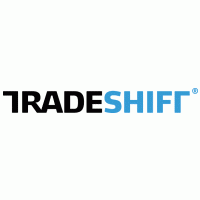
The partnership combines the power of the Tradeshift business commerce platform with the stability and security of the Dai Credit System to establish a supply chain liquidity marketplace for businesses, developers and investors.
Businesses can leverage trade receivables, purchases and other transactions and digital assets on the Tradeshift platform to create real-time and short-term financing models backed by anything from institutional finance to peer lending.
Developers can build investor applications to enable real-world B2B settlements that benefit from the efficiency, transparency, speed and security of the blockchain utilizing the Dai stablecoin.
Investors can benefit from a completely new range of low-friction, low-cost financial applications as a result of making real-world assets, such as invoices, available on the blockchain in a standardized “tokenized” and interoperable format.
The first implementation on the supply chain liquidity marketplace is currently in a pilot test for Tradeshift Cash, an instant invoice financing solution that gives micro, small and medium sized businesses (MSMEs) access to instant cash flow based on their outstanding receivables. Tradeshift Cash provides an alternative way to solve critical growth and stability challenges for MSMEs, who make up the vast majority of companies in most supply chains, and are hit the hardest by long payment terms.
“The trade receivables market has very tight margins, which leaves no room for a volatile digital currency as instrument for settlement,” said Tradeshift co-founder Gert Sylvest. “The Dai Credit System is a unique vision for a transparent and stable token that allows anyone to represent real-world currency settlements on the blockchain. It is a vision that we are very excited about.”
“Our partnership with Tradeshift proves the potential of the blockchain to level the economic playing field for businesses of all sizes around the globe,” said Rune Christensen, CEO of MakerDAO. “At the same time, we’re delivering new options for investors by creating an entirely new class of investment vehicles with vetted risk, based on real world assets.”
Held on the blockchain, Dai achieves stability via an open smart contract platform that allows anyone in the world to lock up their assets as collateral and issue Dai against them. Unlike other stablecoins there is no need to blindly trust a third party. When users want to retrieve their collateral, they simply return the Dai they issued plus a fee based on how long it was outstanding. True to the spirit of the blockchain, no one can alter these core mechanics of Dai, making it a safe and predictable form of money. Launched in 2017, Dai has successfully maintained a soft peg to the US dollar.
Related News
- 09:00 am
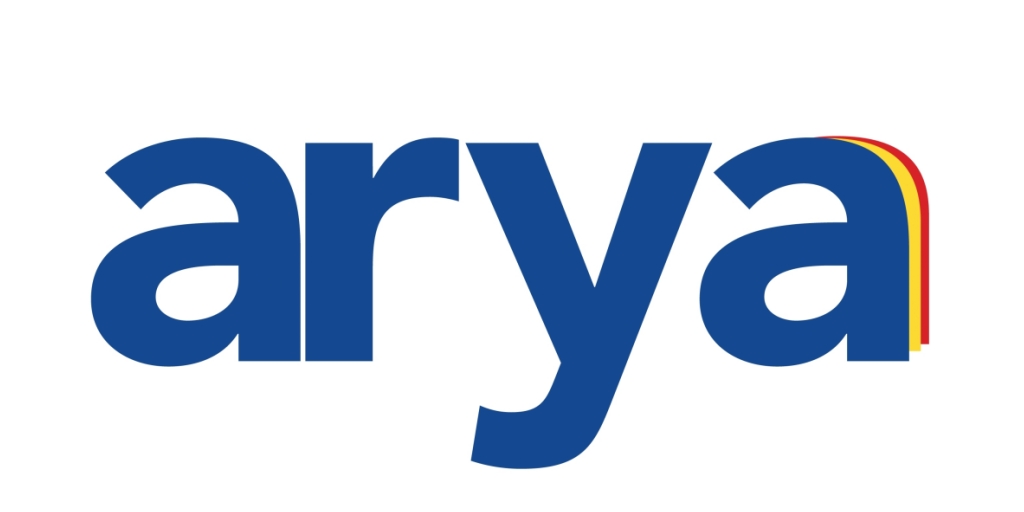
Arya, an intelligent, open architecture digital services platform for both retail and commercial account holders, announced that over 20 financial institutions worldwide have selected its platform to deliver a feature-rich digital banking experience to their account holders. The highly flexible platform is uniquely positioned to serve banker’s banks and corporate credit unions as well.
Launched in August 2017, Arya is the industry’s first fully integrated digital banking platform, combining both mobile banking and digital banking with native, built-in features including VSoft’s industry-leading mobile deposit. By streamlining multiple banking channels under a single access point, Arya provides a seamless user experience while providing financial institutions a single access point to view data. Because the platform is designed to not only adapt to changing technology but also adapt to the changing business objectives of financial institutions, Arya has realized significant growth as demand for the platform increases.
Additionally, VSoft revealed new enhancements to Arya’s user interface at their annual client conference to provide a more intuitive, streamlined digital banking experience. These enhancements follow several recent developments for Arya, including the platform’s new live chat functionalities and biometric authentication features, which demonstrate VSoft’s commitment to helping financial institutions exceed heightened account holder expectations.
“Arya’s growing client-base highlights the industry’s need for a platform that integrates digital banking applications and channels seamlessly without expensive deployments or disrupting account holders,” said Murthy Veeraghanta, chairman and CEO of VSoft. “Our goal is to ensure our financial institution clients have the tools they need to easily scale and adapt as technology and account holder preferences evolve and VSoft’s development of Arya illustrates our commitment toward that objective.”
Related News
- 07:00 am

These are just some of the findings of the fifth-annual Data Security Confidence Index, which surveyed 1,050 IT decision makers and 10,500 consumers worldwide. The research found that business' ability to analyze the data they collect varies worldwide with India (55%) and Australia (47%) best at using the data they collect. In fact, despite nine in 10 (89%) global organizations agreeing that analyzing data effectively gives them a competitive edge, only one in five Benelux (20%) and British (19%) companies are able to do so.
"If businesses can't analyze all of the data they collect, they can't understand the value of it – and that means they won't know how to apply the appropriate security controls to that data," says Jason Hart, vice president and CTO for Data Protection at Gemalto. "Whether it's selling it on the dark web, manipulating it for financial gain or to damage reputations, unsecured data is a goldmine for hackers. You only need to look at the recent hacks on the World Anti-Doping Agency and International Luge Federation to see the damage that can be done. What's more, data manipulation can take years to discover, and with data informing everything from business strategy to sales and product development, its value and integrity cannot be underestimated."
Confidence in securing the breach is low
When it comes to how data is being secured, the study found that almost half (48%) of IT professionals say perimeter security is effective at keeping unauthorized users out of their networks. This is despite the majority of IT professionals (68%) believing unauthorized users can access their corporate networks, with Australian companies being the most likely (84%) and the UK the least (46%). However, once the hackers are inside, less than half of companies (43%) are extremely confident that their data would be secure. UK businesses are the most concerned with just 24% prepared to say they're extremely confident, with Australia the highest (65%).
Even though there is still faith in how they're securing their networks, one third (27%) of companies reported that their perimeter security had been breached in the past 12 months. Of those that had suffered a breach at some point, only 10% of that compromised data was protected by encryption, leaving the rest exposed.
Consumers say compliance is critical
According to the study, a growing awareness of data breaches and communications around GDPR have led to the majority (90%) of consumers believing that it is important for organizations to comply with data regulations. In fact, over half (54%) are now aware what encryption is, showing an understanding of how their data should be protected.
Hart continues, "It's time organizations got their houses in order; starting with who oversees their data security. A central figure such as a Data Protection Officer – essential in some circumstances under GDPR – must be appointed to the board to lead data security from the top down. Next is having more insight and analysis on the data collected to ensure that it is both correctly protected and enabling more informed business decision making. Finally, a mindset change. Organizations must realize that it's no longer a case of if, but when a breach occurs, and protect their most valuable asset – data – through encryption, two-factor authentication and key management, rather than solely focusing on perimeter protection."
Related News
- 09:00 am

Neo & Partners Global, Asia’s and Singapore’s first-of-of-its-kind Entrepreneurial TRADING-ATRIUM (Hub) for Fund Management Companies, Proprietary Trading Firms, Family Offices, Commodity Trading Advisors and FinTech Firms; Big Data and Blockchain, announced today that it has successfully commissioned Noble Vici into its TRADING-ATRIUM.
Supporting Noble Vici’s requirements for an initial six fully equipped UPS powered sophisticated work desks and a war room designed to foster creativity, the TRADING-ATRIUM, as part of its eco-system, provides a state-of-the-art purpose built 24x7 low latency Hub with 10 Gigabit Ethernet cabling capable of data transmission of up to 500 MHz local area networking infrastructure, including secured WiFi connectivity throughout entire facility.
“We are delighted to welcome Noble Vici to Neo & Partners Global’s unique TRADING-ATRIUM community eco-system. In today’s digital transformation environment, the sum of the parts must be greater than the whole are of the essence,” said Eric Neo Say Wei, Chief Executive Officer and Chief Information Officer of Neo & Partners Global.
“It’s imperative for an innovative firm such as Noble Vici to be able to handle all their digital revolutionary Big Data and Next-Gen Blockchain build up through one effective, state-of-the-art infrastructure and business environment. We’re honored and privileged to be chosen my Noble Vici to help them run ahead of the curve (like never before), continually adapt better to a fast-changing environment and grow sustainably.”
Noble Vici, a Singapore home grown FinTech small and medium-sized enterprise (SME) on the cutting edge of technology, through in-house developments and external acquisitions is building an ecosystem of Big Data and Next-Gen Blockchain to form a digital revolution in emerging markets where disruptive innovations reign.
Sir Eldee Tang, Chief Executive Officer, Noble Vici, said, “Choosing to partner with Neo & Partners Global was an easy choice after reviewing the firm’s TRADING-ATRIUM 360° array of innovative eco-system, sophisticated technologies and facility Hub, which is truly impressive. With increasing surge numbers of cyber-attacks around the world and into Singapore (https://www.todayonline.com/singapore/singapore-top-cyber-attack-target-during-trump-kim-talks-report), we are also impressed with the TRADING-ATRIUM’s technology infrastructure emphasis on deploying next generation firewall capabilities as part of their Cyber Security initiatives.”
“We can now forge ahead our FinTech in Big Data and Next-Gen Blockchain Ecosystem build up effectively, leveraging on their state-of-the-art technologies and infrastructures in a conducive human-centric designed facility.”
Related News
- 09:00 am
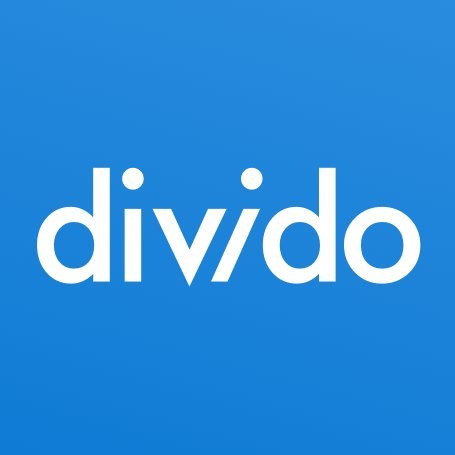
Divido, the retail finance platform, has today announced the introduction of two new features to its checkout platform, Pay Later and Bank Transfer. With consumer awareness of payment methods continuing to grow, these new features are launched at a critical time when retailers need to provide customers with a range of payment options to secure the sale.
Pay Later
With traditional point of sale finance, the customer pays off the credit via monthly instalments, for a set period of time. With Divido’s Pay Later, the customer pay nothing for a set period (e.g. 3 or 12 months) and settles the full amount the final month instead.
This provides the customer with more choice with how they would like to manage their finances, as well as taking advantage of interest-free finance. While providing an attractive option for the customer, Pay Later is also cheaper for the retailer to offer than traditional point of sale finance. Meanwhile, to ensure retailers have the opportunity to increase conversion, the merchant can still advertise the effective incentive of 0% interest that is proven to help secure sales.
Bank Transfer
Divido’s Bank Transfer option provides the customer with the choice to pay in full upfront via bank transfer, rather than credit card. As the transfer is entirely electronic, the process is instant, so the money is immediately deposited into the merchant’s account. The customer needs to only select their bank and complete a short security process.
As well as being fast, this method is much cheaper for the retailer than the typical credit card purchase. This can be used in 25 countries, including those where there is a high proportion of consumers that choose bank transfer as their number one payment method.
“Point of sale finance has been around for 50 years but it hasn’t evolved much – we want to end that by expanding the flexibility we offer to our customers, listening to their feedback and adapting our technology accordingly”, comments Christer Holliman, CEO of Divido. “In light of this, we’re excited to announce the introduction of these features that will give end customers the flexibility to decide the finance option that’s right for them, and ensure they can get the item they want, when they want it.”
Related News
- 05:00 am

The payments disruptor presented their new Global Account at the Astana International Finance Centre (AIFC) in Kazakhstan last week during the Astana Finance Days forum.
Presenting the solution Ronald Millar, CEO of Paysend, said: “We are very happy to present this new product and announce its upcoming launch.
“It is very much in line with the expectations of modern consumers, who want to buy and exchange dollars, euros and pounds and easily convert them to crypto currencies within one app. With our smart card you can pay for goods and services in any country and withdraw cash from millions of ATMs worldwide.”
The Global Account, which is a smart card linked to a mobile wallet, allows people to buy, hold and move traditional and crypto currencies from the convenience of one account.
Kairat Kalimbetov, Astana International Financial Centre Governor said: “We are excited to invite Paysend to become an AIFC resident and launch a trial of cryptocurrency features within our regulated sandbox framework. Without a doubt we consider this product to be a huge step in the development of the global FinTech industry. AIFC will always promote and support the development of regional and global financial innovations.”
PaySend founder Abdul Abdulkerimov added: “We are very pleased to make this announcement in Astana, which is famous for pioneering new technologies. This product offers unrivalled convenience and very tangible benefits for our customers. It’s high time to remove the borders between traditional and crypto currencies and make it work for ordinary people.”
Related News
- 03:00 am
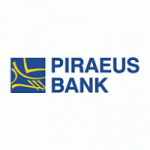
Antelop, leading reference in mobile payment solutions for card issuers and banks accelerate deployment with Piraeus Bank, largest card issuer in Greece.
"Antelop's extensive scheme certifications, its best-in-class PCI DSS compliance and their unique security expertise, were key factors to choose them as our long-term partner, Mr. John Raptakis, Head, Transactional Banking Systems, Remote Banking at Piraeus Bank says.
"The scalability, agility and fast time-to-market of Antelop's SaaS-based approach is very attractive and will deliver an enhanced service to our customers," Mr. Raptakis adds. "Integration is simple and Antelop’s team is always available to provide their extensive expertise in both business and technical related issues”
Founded by a team of former senior consultants and technical product managers at Visa, Antelop's white-label ecommerce and mobile payment solutions support Visa, Mastercard and Cartes Bancaires applications and can be integrated into an issuer's existing environment, web and mobile banking, or offered as a standalone service. Antelop was the first company to reach security compliance by Visa for an NFC mobile payment application in 2015.
Customers include French bank Crédit Mutuel Arkéa, which uses Antelop technology to power their mobile payments service launched in February last year. Additionally, Antelop announced last week, it had received certification from Visa as a Token Requestor-Token Service Provider (TR-TSP).
"We are delighted that Piraeus Bank has chosen Antelop as their long-term partner and very much look forward to working with their team to build e-wallet and mobile payments services that deliver market leading solutions to their customers," says Nicolas Bruley, CEO at Antelop.
Related News
- 08:00 am
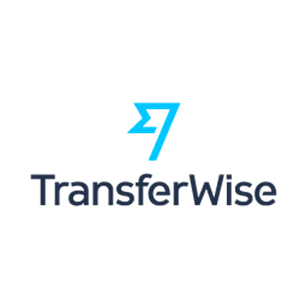
Leading London-based fintech company TransferWise announced today (6 July 2018) the official launch of its international money transfer platform in Hong Kong, giving it a major foothold in Asia as part of the company's ongoing international expansion.
TransferWise operates on the concept of matching up transfers with other people on the digital platform. It uses the mid-market rate, which is only a fraction of the rates used by traditional currency transfer operators. After a successful pilot period, TransferWise has already been able to drop prices for customers transferring money from Hong Kong by more than 20 per cent, Mr Käärmann said.
"Over 3 million people across the world use TransferWise as a fair and easy way to manage their money across borders. Hong Kong represents a key market for TransferWise. Over 4 per cent of Hong Kong's population are foreigners, and many Hongkongers are living in other parts of the world. Hong Kong also has a long, rich history as a world leading economy and home of international commerce," he added.
Associate Director-General of Investment Promotion Dr Jimmy Chiang said, "I'm excited to see TransferWise making its foothold in Hong Kong. This is a big step not only for the company but also for Hong Kong as we are committed to becoming a leading fintech city in the world. TransferWise's decision to set up in our city is a win-win for both."









